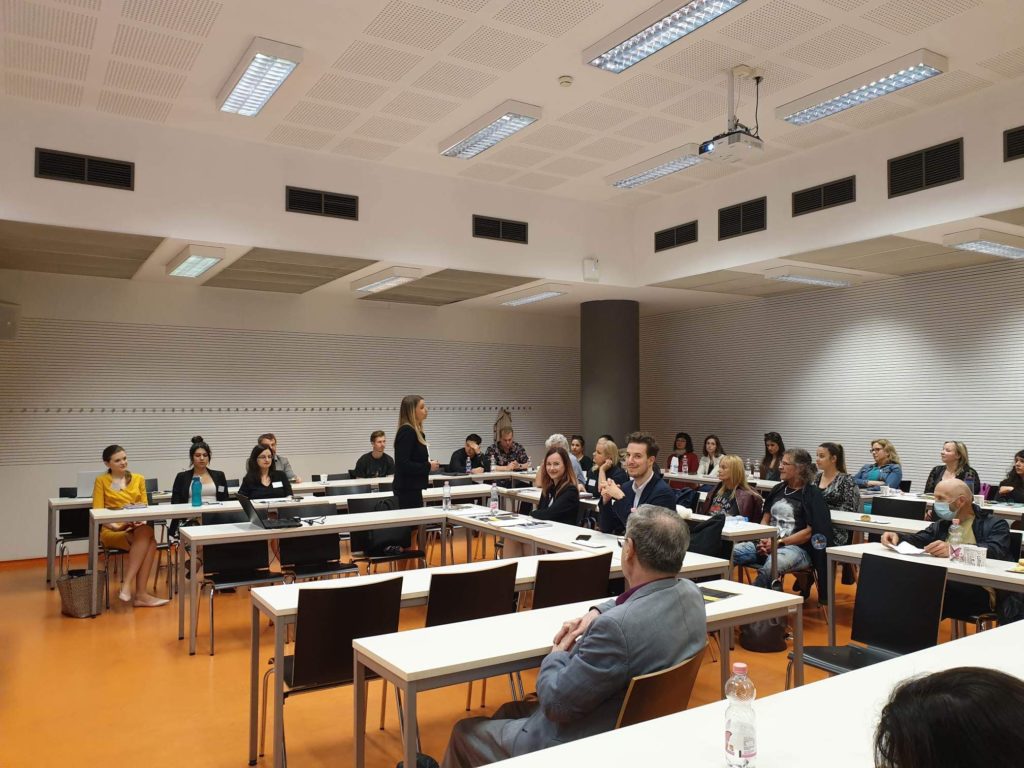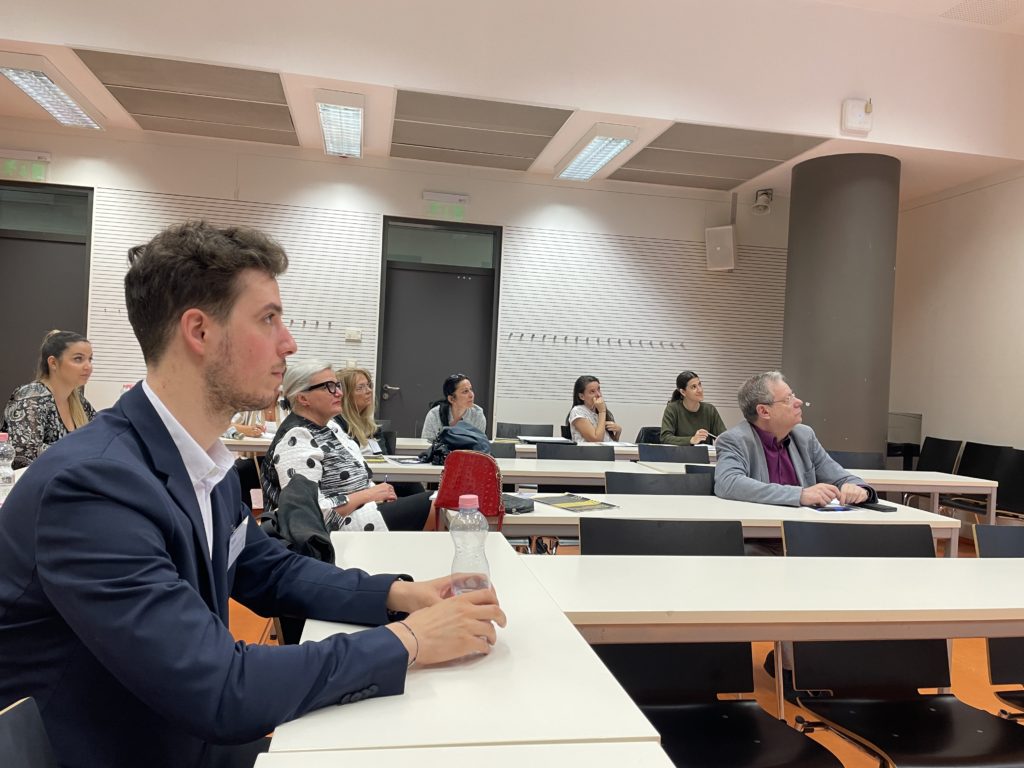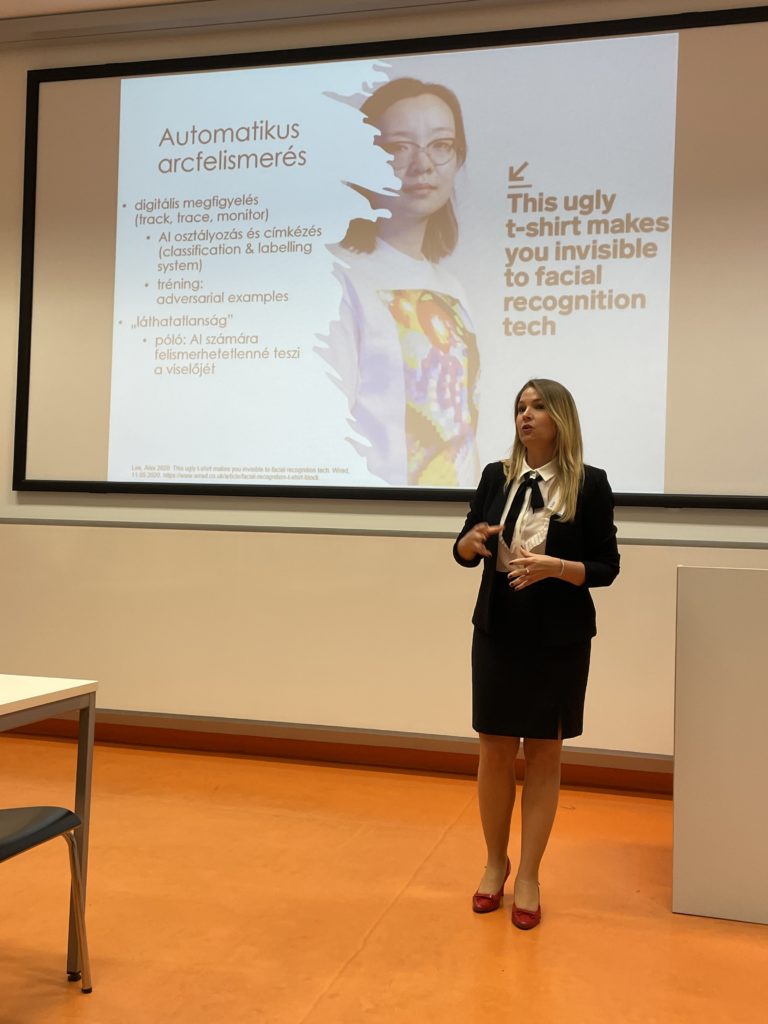Artificial Faces, Real Personalities: A unique conference of European niveau at Corvinus

With the proliferation of visual manipulation techniques based on artificial intelligence (AI), new questions arise: How can we defend ourselves against online deception? How can we separate reality from manipulation? How can we ethically use the latest image and video editing technologies? These forward-looking questions were answered – and more questions raised – at the conference on Artificial Faces, Real Personalities, organised by the CGI-Deepfake Research Group. Held on 24 May 2022 at Corvinus University of Budapest, it was the first scientific event specifically dedicated to deep learning-based video manipulation, i.e. deepfakes and their associated topic, namely virtual characters. The conference featured three plenary and nine session presentations for in-person and online participants.
The CGI-Deepfake Research Group, which organised the conference, has been operating since 2021 and is affiliated to the Department of Communication and Media Studies of the BCE, under the leadership of Dr. Ágnes Veszelszki associate professor. Their main research area is the investigation of manipulative content created using artificial intelligence. In spring 2021, the research team conducted a large-scale questionnaire survey: more than 10,000 respondents answered questions on the inclusion and recognition of manipulated images and deepfake videos. A first article based on the survey has already been published, and further publications on the subject are forthcoming.

Dr. Tamara Keszey, Vice Rector for Research, welcomed the audience and underlined in her speech that Corvinus is constantly keeping up with technological innovations, not only in an organisational but also in an academic context. As the first plenary speaker, Professor Dr. Petra Aczél explored the cultural and communicative context of the deepfake phenomenon with a number of current examples and thought-provoking, forward-looking questions. Psy-chotherapist-psychoanalyst Annamária Tari discussed the cognitive, mental aspects of ma-nipulating reality and the effects on recipients. The third plenary speaker was Dominik Ko-vács, co-founder of Colossyan, which uses deepfake as an ethical business, who showed in practice what the technology can do for business.

Dr. Ágnes Veszelszki, the main organiser of the conference, highlighted the paradox of deepfake and disinformation: one of the consequences of this phenomenon is that not only manipulative media content creates doubt in consumers, but also real information from le-gitimate for-sources. In her presentation, internet lawyer Dr. Katalin Baracsi explained the legal possibilities that exist to ensure safe use of the internet. PhD student Marcell Mezriczky, also a member of the CGI-Deepfake Research Group, conducted a press analysis for the same period in 2021 and 2022 and showed how the press coverage of deepfake has changed over the year. Dr. Imre Szíjártó presented the presentation of digital media in sec-ondary school curricula based on a textbook.
The second session focused on computer-generated imagery (CGI). In her research, Evelin Horváth (also a member of the organising research team) investigated the AI-based ideal of beauty, asking whether users find images that have undergone automatic retouching more beautiful than those without filters. Krisztina Béres, a graduate student in Communication and Media Studies at Corvinus, presented her research on the future of virtual influencers and CGI in the beauty and fashion industry. Dr. Ákos Gocsál, lecturer at the University of Pécs and researcher at the ELKH, assessed the impressions associated with artificially al-tered variations of the human voice. Lilla Szabó, Alexandra Béni, Judit Sebestény and Zsófia Szlama presented on political personification based on the findings of a pilot study. The last speaker, Dr. Nikoletta Házas, presented perspectives on the dignity of face and body visibil-ity in old age.
The conference, entitled Artificial Faces, Real Personalities, held at Corvinus University on 24 May 2022, gave an insight into the current state of a new scientific field, while also providing an opportunity to engage in a scientific discourse that is currently taking shape.